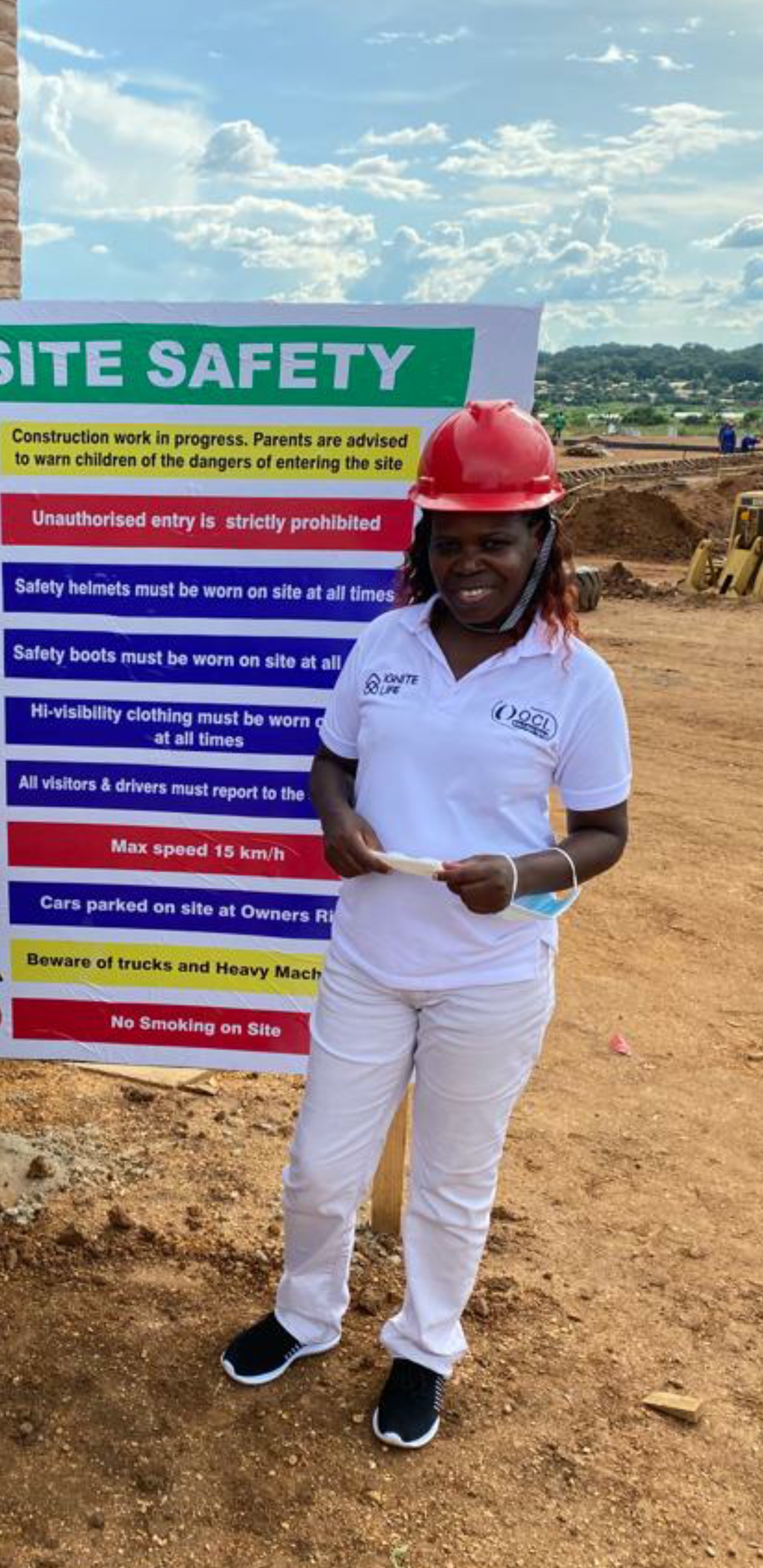Take Five: "Building the confidence of girls to pursue STEM is crucial"
Date:
Stella Senti is an experienced Telecommunication expert with a broad portfolio of skills that combine analytical research skills in Telecommunication, strategic Leadership skills, up-to-date Technology knowhow, planning and budgeting, Project Management and Implementation, innovative customer-driven experience, particularly with regards to integration and designing of new Technologies in a progressive and dynamic technological environment.

Why is women's and girls' inclusion in the digital world key for promoting gender equality?
My definition of gender equality is equal access to resources. My definition of a digital world is a digitally enabled environment; being able to chat, sell or buy on Facebook or Twitter transact online, being alert, and being able to adopt future technologies quickly. The modern world is now immersed in the digital world and once in it you can’t imagine life outside it. Development is largely defined by a digitally enabled generation in that regard. Women and girls make up about 50% of the world’s population, hence creating a digitally enabled for them clearly speaks to offering equal opportunities to the female gender to enjoy the modern world alongside their male counterparts. And thus raising the development bar.
What would the ideal inclusive digital East and Southern Africa look like?
First, there should at least be equal opportunities for girls studying Science subjects in Secondary and University education studies so that both genders are equipped with digital skills. Recent research shows that women hold just 26.7% of tech-related jobs. Even with efforts to increase diversity and inclusion in the digital world, in 2021 the percentage reduced by 2.1% compared to 2020. In 2022 however, the number increased to 33%. Despite East and Southern Africa being home to almost 60% of Africa’s population, the numbers could even be lower. An ideal position for an inclusive digital region is improving the number of women holding tech-related jobs and owning technology companies. The adoption of technology enables occupations like e-farming owned by women. Equal pay for men and women in the digital world is key as are equal promotion opportunities.
How are you contributing to this?
The company I work for has recently signed MOUs with all public Universities in Malawi to accommodate female students studying technology or technical programs. MACRA (Malawi Communications Regulatory Authority) has approached me, in turn, to talk to students studying Science subjects in Universities and Secondary Schools for encouragement.
What actions can we take now?
Efforts should start at the household level when girls and boys are just toddlers. Parents should be encouraged to buy them similar toys. Not a car for a boy and a baby toy for a girl. Making sure both have equal opportunities to use and understand electronic gadgets and ensuring all have equal time to spend on digital devices. The myth that boys are superior to girls has to be eradicated. Civic education at grass root levels in the villages will enlighten women to lift the barrier and educate their girls. This could be done through local media and faith-based entities. Most of the time, women are less privileged to own or use a digital gadget because of poverty levels. Empowering women to be independent is another key action. Small businesses will make women rely on themselves and not their husbands. There should be deliberate moves by Governments to initiate small-scale businesses among other options. Governments should also have more public digital access facilities -WIFI, games, etc and encourage girls to participate. We should encourage companies to start science competitions from the primary school level to encourage girls to grow interested in science subjects. Governments could also introduce rewards from Primary schools for those girls that do well in science subjects and bring more female teachers in science subjects to act as role models for young girls. Finally, early marriage deprives girls of attaining higher education levels, so we should find ways of discouraging this. Use local chiefs to monitor this and reward those chiefs that are doing well in eliminating early marriage in their locales.
How can we change the narrative that women are not good in tech?
Building the confidence of girls to pursue STEM is crucial. When I was young, my Dad bought a second-hand TV. One day when we were watching “Coming to America”, it just went off. I was angry, but I gathered the courage to open it and figured out how to fix it, and assembled it again. That was when my love for STEM began and why I pursued a career in the engineering field. The few women that have excelled in science subjects should be at the forefront of changing the narrative. They have a role to play in showing, educating, and mentoring girls that math is easy.
Giving girls the space to explore interest in STEM careers early on is another key action. Hence career talks should start from lower primary school. Growing up and graduating from primary school should make one passionate enough to pursue a technology-based program.